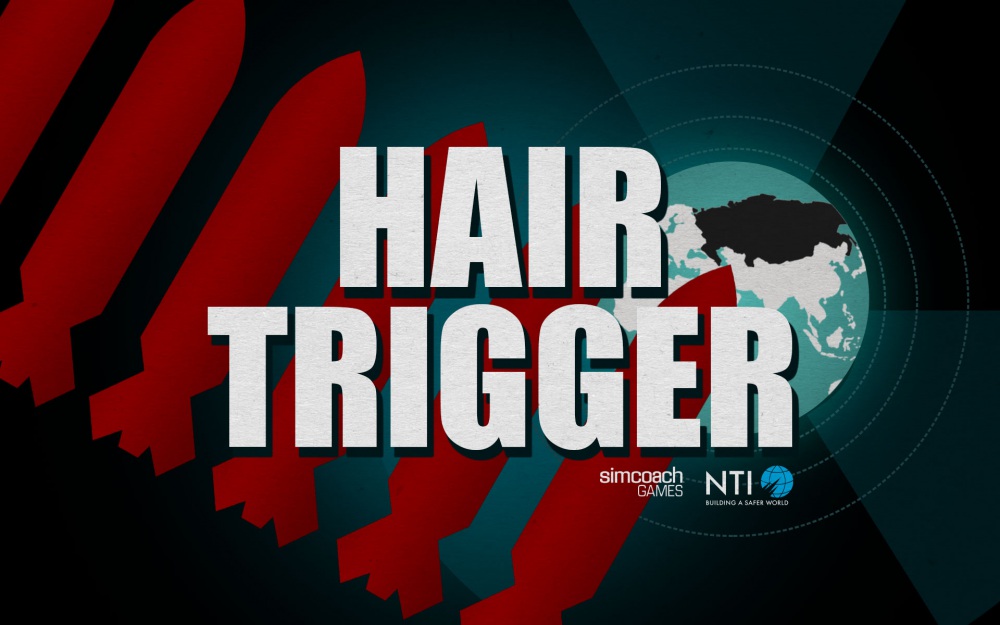
New Mobile Game Challenges Players to Take Nuclear Weapons Off of Hair-Trigger Alert Before Facing Catastrophe
In Hair Trigger, the player takes on the role of a newly elected President of the United States.
Lack of attention by elected officials, political candidates, the press, and voters in the United States to urgent security issues like rising tensions between the U.S. and Russia, cyber threats to nuclear plants and weapons systems, and terrorists seeking weapons of mass destruction.
Educate voters through public events, the news media, social media, and online resources about nuclear and other WMD threats to help build political will for addressing them.
Engagement on issues of national and global WMD security with voters, journalists, candidates, and elected officials.
Preventing the spread and use of nuclear and other weapons of mass destruction is essential to the security of the American people—and voters can have a powerful voice both in raising important security issues and in discussions about how to address them. Because issues like nuclear nonproliferation, arms control, cyber threats against nuclear weapons systems and biosecurity are complex, many voters don’t feel agency to take action. And many elected officials don’t think voters care.
This makes public education crucial.
Today, amid increasingly tense relations with Russia, the advance of new technologies like cyber and artificial intelligence, and the persistent threat of terrorism, we face the highest risk of use of a nuclear weapon since the Cuban Missile Crisis. Like climate change, weapons of mass destruction pose an existential threat to the United States and the world.
There are proven ways to reduce these risks – and that’s why we must focus on the threat and our leaders must pursue policies and actions to ensure that nuclear weapons will never be used, avoid a new nuclear arms race, prevent proliferation, and stop terrorists from gaining access to the materials needed to build bombs.
Because nuclear policy is inherently presidential, the candidates seeking the White House—from both political parties—should be speaking out about their plans and policy ideas to keep Americans safe. If they’re not, voters should demand that they do.
Among the most pressing questions for candidates and elected officials:
As voters, we have a responsibility to educate ourselves and to demand our leaders and candidates address the threats we face today and the risks we will pass on to future generations. A more secure future depends on all of us.
Read More
To get started, check out NTI’s Education Center for teaching tools, tutorials, and databases. On our website, you can also find country profiles and a comprehensive glossary for all the hard-to-remember nuclear terms. Subscribe to get the latest updates on NTI’s Safer World 2020.
In Hair Trigger, the player takes on the role of a newly elected President of the United States.
The demand for presidential candidates to address the risks posed by nuclear weapons cuts across party lines.

